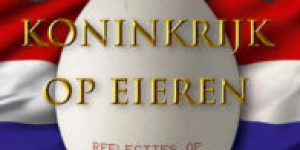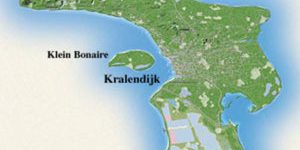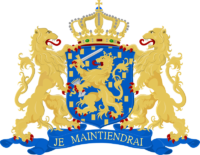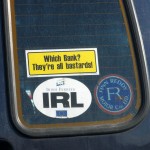Bart Jacobs ~ Papiamentu: een Trans-Atlantische tocht
No comments yetHet Papiaments, de taal van Aruba, Bonaire en Curaçao, is één van de spannendste talen ter wereld. Waarom is het Papiamentse woord voor ‘wit’, blanku, van het Spaans afgeleid, terwijl dat voor ‘zwart’, pretu, van het Portugees komt? En is deze taal echt in het Caraïbisch gebied ontstaan of komt ze eigenlijk uit Afrika? En hoe kon het Papiaments zich tegenover het koloniale Nederlands handhaven?
Mengtaal
Kreooltalen, zoals het Papiaments, zijn in het koloniale tijdperk ontstaan uit het contact tussen kolonisten en slaven. Het zijn dus extreem jonge talen in vergelijking met millennia oude Indo-Europese talen zoals het Nederlands, Engels of Portugees. Maar hoewel het Papiaments een jonge taal is, heeft het al een bijzonder turbulente en bonte geschiedenis achter de rug. Dit bonte karakter is goed terug te zien in de gemengde woordenschat. Hoewel de basiswoordenschat uit Spaanse en Portugese woorden bestaat (waarover straks meer), bevat het lexicon ook woorden en elementen van Afrikaanse oorsprong (bijv. nan [3e persoon meervoud], yongotá ‘hurken’, makamba ‘makker’, tambú ‘lokale dans- en muzieksoort’), Indiaanse (voornamelijk flora, fauna, en toponymen), Nederlandse (bijv. hanchi, wak, lesa, blo, sua, hopi < Ned. gangetje, waken, lezen, bloot, zwager, hoop/hopie) en Engelse oorsprong (bijv. bek, pusha < Eng. back, push). Het is eenvoudig om in het Papiaments zinnen te maken met elementen uit vier of meer talen. Het Papiaments is daarmee veel gemengder dan de meeste andere creooltalen: het Jamaican Creole, bijvoorbeeld, bestaat voor meer dan 90% uit Engelse woorden.
Lees verder: http://stemmenvanafrika.nl/papiaments
You May Also Like
Comments
Leave a Reply








